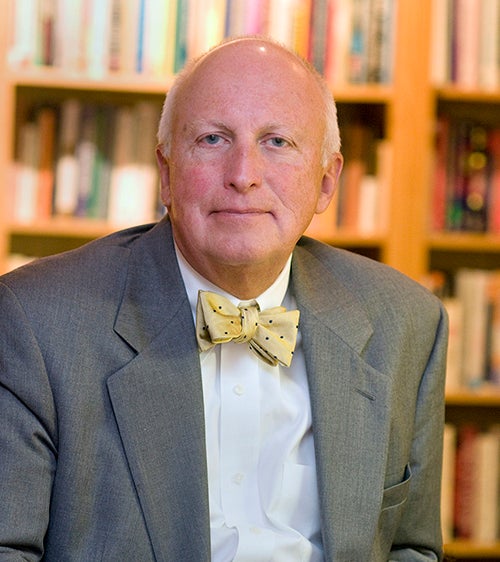
Dr. W. Michael Hoffman
FEBRUARY 23, 1943 - DECEMBER 6, 2018
On December 6, 2018, the compliance and ethics community suffered a great loss with the passing of Dr. W. Michael Hoffman. Hoffman was the founding executive director of the W. Michael Hoffman Center for Business Ethics at Bentley University in Waltham, Massachusetts. Additionally, he was the first executive director of the Ethics Officers Association. Dr. Hoffman was the author of 16 books and more than 100 articles. In recognition of his pioneering work in the field of business ethics, he received several lifetime achievement awards from professional organizations and was named Humanist of the Year in 2001 by the Ethical Society of Boston.
In 2008, I had the pleasure of interviewing Hoffman while he was visiting Rochester, New York. I asked him about the early days of the business ethics movement and his assessment of the impact that the compliance and ethics profession has had on the business community. After learning of his passing, I retrieved my notes from that interview, which are partially reproduced below.
Q. What first sparked your interest in the field of business ethics?
A. I began taking an interest in the field of business ethics over 30 years ago in the mid-1970s. The Watergate scandal was the main catalyst that caused me to realize the unmet need to raise ethical awareness in business and other organizations. Also, at around that same time, I took a position as the chairman of the Bentley College Philosophy Department. One of my goals when I came to the college was to link philosophy with the college’s mission to train new business leaders. Even though the idea of business ethics is as old as business itself, in the mid-1970s there was no field in academia dedicated to business ethics. There were no textbooks, journals, or academic courses. I decided to fill that void through a grant from the National Endowment of the Humanities to launch courses at Bentley in business ethics, and to create the Center for Business Ethics.
Q. How has the field of business ethics changed over the years?
A. At the time I started the Center for Business Ethics at Bentley College in 1976, the lack of academic focus on business ethics was matched by a lack of focus or awareness of this subject in corporations. There were, of course, some enlightened CEOs, who initiated ethics programs in their companies, but these were rare at the time. Most corporations did not really begin paying attention to ethical issues in a systematic way until the defense industry scandals of the 1980s and the public outrage that followed. This caused a number of CEOs to conclude that they needed to take some action to avoid additional industry regulation. This led to an initiative by the defense industry to begin the development of business ethics programs in their companies.
Another significant milestone in the evolution of business ethics in the United States was the publication of the Federal Sentencing Guidelines for Organizations (the FSGO) in 1991. The FSGO provided incentives for businesses to develop compliance programs and a roadmap as to how to do it. Many businesses around the country responded by developing programs patterned after the seven elements of an effective compliance program set forth in the guidelines.
That same year witnessed the formation of the Ethics Officer Association. I brought around 50 ethics professionals, many from the defense industry, together at Bentley College for a two-day conference. They really enjoyed the meeting and wanted to continue getting together to share best practices. We formed a board of directors, a charter, and bylaws for the Ethics Officer Association, and I was appointed as the group’s first executive director. From that time forward, a business ethics profession has emerged and continues to grow in influence and sophistication. Virtually every major corporation today has an ethics officer.

Q. What impacts have the more recent corporate scandals had on the business ethics movement in the United States?
A. The business scandals that dominated the headlines involving Enron, World Com, and Adelphia have had a mixed impact. One result of the scandals was that serious questions were raised both inside and outside of corporations about whether the business ethics programs in companies were doing any good or were just window dressing. On the other hand, these scandals had a beneficial impact because it caused many of us to begin to focus on root causes of such failures, and the importance of culture in organizations.
Q. In your view, have compliance and ethics programs had a beneficial impact on business performance?
A. Generally speaking, I think they have had a beneficial impact. You need to look at the formation of such programs as an evolving process and the programs that are in place now as an infrastructure from which we can build ethical cultures. We should look at business ethics programs and the important work they are doing as a journey rather than a destination.
Q. What do you see for the future of business ethics in companies?
A. I think there is a growing recognition that mere compliance is not enough. There must be a greater focus on values and the question of what we must do to create and sustain ethical cultures. Also, it is important that companies avoid complacency. Just because nothing has gone wrong recently doesn’t mean that they need not focus as hard on their ethics programs. Complacency could lead to cutbacks on resources dedicated to developing ethical cultures and result in a repeat of past failures.
Hoffman’s insights are as relevant and potent now as they were when he shared them with me in 2008. He was truly one of the founding fathers of the compliance and ethics profession, and he will be greatly missed.




